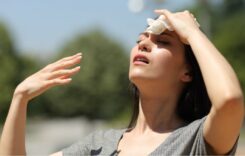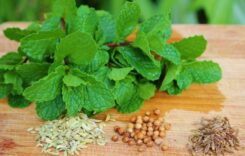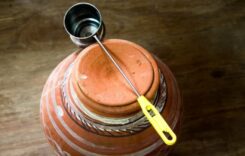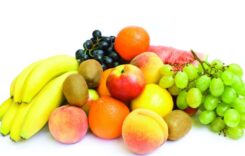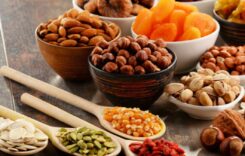Who gets the chance to be preferred choice for a COVID-19 antibody? U.S. wellbeing specialists trust by late one month from now to have some draft direction on the most proficient method to apportion starting dosages, however it’s a vexing choice.
“Not everybody’s going to like the answer,” Dr. Francis Collins, executive of the National Institutes of Health, as of late let one know of the warning gatherings the administration requested to help choose. “There will be many people who feel that they should have been at the top of the list.”
Generally, preferred choice for a scant immunization are wellbeing laborers and the individuals generally helpless against the focused on disease.
In any case, Collins threw new thoughts in with the general mish-mash: Consider topography and offer need to individuals where an episode is hitting hardest.
Furthermore, remember volunteers in the last phase of immunization testing who get sham shots, the correlation bunch expected to tell if the genuine shots really work.
“We owe them … some special priority,” Collins said.
Colossal examinations this late spring expect to demonstrate which of a few trial COVID-19 antibodies are protected and successful. Moderna Inc. what’s more, Pfizer Inc. started tests a week ago that in the end will incorporate 30,000 volunteers each; in the following hardly any months, similarly huge gets for volunteers will go out to test shots made by AstraZeneca, Johnson and Johnson and Novavax. What’s more, a few antibodies made in China are in littler late-stage concentrates in different nations.
For all the guarantees of the U.S. storing a great many dosages, the hard truth: Even if an immunization is pronounced protected and viable by the end of the year, there won’t be sufficient for each and every individual who needs it immediately – particularly as most potential antibodies require two portions.
It’s a worldwide situation. The World Health Organization is wrestling with a similar who-goes-first inquiry as it attempts to guarantee antibodies are genuinely appropriated to helpless nations – choices made significantly harder as well off countries corner the market for the primary dosages.
In the U.S., the Advisory Committee on Immunization Practices, a gathering set up by the Centers for Disease Control and Prevention, should prescribe who to inoculate and when – guidance that the administration quite often follows.
In any case, a COVID-19 antibody choice is precarious to the point that this time around, ethicists and immunization specialists from the National Academy of Medicine, contracted by Congress to exhort the legislature, are being approached to say something, as well.
Setting needs will require “creative, moral common sense,” said Bill Foege, who concocted the inoculation technique that prompted worldwide destruction of smallpox. Foege is co-driving the foundation’s considerations, calling it “both this opportunity and this burden.”
With antibody falsehood proliferating and fears that legislative issues may interrupt, CDC Director Robert Redfield said the open must consider immunization to be as “equitable, fair and transparent.”
How to choose? The CDC’s initial recommendation: First immunize 12 million of the most basic wellbeing, national security and other fundamental specialists. Next would be 110 million individuals at high hazard from the coronavirus – those more than 65 who live in long haul care offices, or those of all ages who are in unexpected weakness – or who likewise are esteemed basic specialists. Everybody would come later.
CDC’s antibody guides needed to know who’s extremely fundamental. “I wouldn’t consider myself a critical health care worker,” conceded Dr. Dwindle Szilagyi, a pediatrician at the University of California, Los Angeles.
In reality, the dangers for wellbeing laborers today are far not quite the same as in the pandemic’s initial days. Presently, wellbeing laborers in COVID-19 treatment units regularly are the best secured; others might be more in danger, board of trustees individuals noted.
Past the wellbeing and security fields, does “essential” mean poultry plant laborers or teachers? What’s more, consider the possibility that the immunization doesn’t fill in also among weak populaces as among more youthful, more beneficial individuals. It’s a genuine concern, given that more established individuals’ safe frameworks don’t fire up too to influenza immunization.
With Black, Latino and Native American populaces excessively hit by the coronavirus, neglecting to address that assorted variety signifies “whatever comes out of our group will be looked at very suspiciously,” said ACIP director Dr. Jose Romero, Arkansas’ interval wellbeing secretary.
Consider the urban helpless who live in jam-packed conditions, have less access to human services and can’t telecommute like more special Americans, included Dr. Sharon Frey of St. Louis University.
What’s more, it might merit immunizing whole families instead of attempting to single out only one high-chance individual in a family unit, said Dr. Henry Bernstein of Northwell Health.
Whoever gets the opportunity to go initial, a mass inoculation crusade while individuals should stay away is a difficult task. During the 2009 pig influenza pandemic, families held up in long queues in parking areas and at wellbeing divisions when their turn came up, swarming that specialists realize they should dodge this time around.
Activity Warp Speed, the Trump organization’s push to speed antibody assembling and dispersion, is turning out to be the way to quickly ship the correct number of dosages to any place immunizations are set to happen.
Drive-through inoculations, spring up facilities and other creative thoughts are for the most part on the table, said CDC’s Dr. Nancy Messonnier.
When an immunization is announced compelling, “we want to be able the next day, frankly, to start these programs,” Messonnier said. “It’s a long road.”

